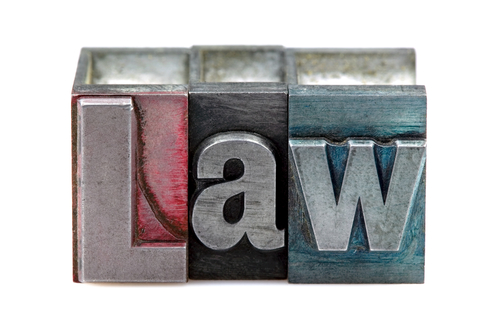 Virginia Cornwell is a OSBA Certified Family Relations Specialist, and practices exclusively Family Law.
Virginia Cornwell is a OSBA Certified Family Relations Specialist, and practices exclusively Family Law.
In Ohio, if a single mother dies, issues will arise regarding who is going to raise her children and who may have visitation with the children.
CALL NOW at (614) 225-9316
In this situation, if the father wanted to obtain custody of his children, he would need to establish paternity, if it was not already done. He would need to file his complaint to establish a parent-child relationship (establish paternity), as well as his complaint to allocate parental rights and responsibilities (get custody). Once paternity is established (see our other articles), the court can make orders regarding custody. Given that the mother has passed away, a court may be willing to hear an emergency custody motion.
CALL NOW at (614) 225-9316
 Sometimes, in the situation of a single mother, grandparents may have been very active in the child’s life, perhaps more so (in their opinion) than the father. In this situation the grandparents sometimes feel entitled to custody of the child, especially if the mother made her wishes clear on the matter before she passed away. However, Ohio law is clear. The rights of the father in this situation supersede those of the grandparents, unless the grandparents can demonstrate that the father is unfit. For more information about the legal standards for a court to find a parent unfit, click HERE.
Sometimes, in the situation of a single mother, grandparents may have been very active in the child’s life, perhaps more so (in their opinion) than the father. In this situation the grandparents sometimes feel entitled to custody of the child, especially if the mother made her wishes clear on the matter before she passed away. However, Ohio law is clear. The rights of the father in this situation supersede those of the grandparents, unless the grandparents can demonstrate that the father is unfit. For more information about the legal standards for a court to find a parent unfit, click HERE.
CALL NOW at (614) 225-9316
 In the case of terminal illness, the mother may know in advance that she is going to pass away. She may have executed a will that says who she wants to be the custodian of her child. This statement in her will is only a statement of her preference, it does not transfer custody of the child upon her death. Despite the mother’s statement in her will, the father’s rights trump those of the grandparents. Unless the father is an unfit parent, if he seeks custody of his children, he will get it.
In the case of terminal illness, the mother may know in advance that she is going to pass away. She may have executed a will that says who she wants to be the custodian of her child. This statement in her will is only a statement of her preference, it does not transfer custody of the child upon her death. Despite the mother’s statement in her will, the father’s rights trump those of the grandparents. Unless the father is an unfit parent, if he seeks custody of his children, he will get it.
CALL NOW at (614) 225-9316
 This does not mean that grandparents cannot seek visitation. For more information on grandparent visitation, read one or more of our many articles about grandparent rights by clicking the category in the left black column, and then select an article. You may also select the topic in the right hand black column.
This does not mean that grandparents cannot seek visitation. For more information on grandparent visitation, read one or more of our many articles about grandparent rights by clicking the category in the left black column, and then select an article. You may also select the topic in the right hand black column.
CALL NOW at (614) 225-9316
 Need some help? We would be happy to schedule a consultation with you. Please give us a call, and one of our Ohio Child Custody Lawyers will meet with you to discuss your case.
Need some help? We would be happy to schedule a consultation with you. Please give us a call, and one of our Ohio Child Custody Lawyers will meet with you to discuss your case.

Virginia Cornwell is an Ohio State Bar Association Certified Family Relations Specialist.
DISCLAIMER – Read it, it’s important!









 This article is the 9th installment in a series by Virginia Cornwell, a A
This article is the 9th installment in a series by Virginia Cornwell, a A  Ohio law states:
Ohio law states: GRANDPARENT POWER OF ATTORNEY
GRANDPARENT POWER OF ATTORNEY This is the 8th installment in a series by Virginia Cornwell, an
This is the 8th installment in a series by Virginia Cornwell, an  A Motion to Intervene is NOT the same things as a Motion for Visitation. It is not the name of the pleading that attorneys file when grandparents want custody. It does not matter if an attorney or someone at the court house tells you it is the same thing – the LAW says it is not the same thing, and when a grandparent loses their rights because the wrong thing was filed, it is the LAW that the court will point to when they do it. Sometimes when a grandparent files the wrong court papers, the court will try to help grandparents out by pointing out that the wrong request has been filed, but when the court is not so inclined, or believes it would be inappropriate to do so, that Motion to Intervene, sitting in the file all by itself, is going to be the noose that the grandparents’ rights are hung by.
A Motion to Intervene is NOT the same things as a Motion for Visitation. It is not the name of the pleading that attorneys file when grandparents want custody. It does not matter if an attorney or someone at the court house tells you it is the same thing – the LAW says it is not the same thing, and when a grandparent loses their rights because the wrong thing was filed, it is the LAW that the court will point to when they do it. Sometimes when a grandparent files the wrong court papers, the court will try to help grandparents out by pointing out that the wrong request has been filed, but when the court is not so inclined, or believes it would be inappropriate to do so, that Motion to Intervene, sitting in the file all by itself, is going to be the noose that the grandparents’ rights are hung by. So what is a Motion to Intervene, and when is it necessary? The are are governed by
So what is a Motion to Intervene, and when is it necessary? The are are governed by  This article has already discussed under what situations a grandparent may obtain custody, but in one of those situations, we can’t say it often enough – Grandparents – if your children are involved in a children’s services case, FILE YOUR COURT PAPERS FOR CUSTODY EARLY IN THE CASE, BEFORE THE DISPOSITION AND SERVE IT ON ALL ATTORNEYS AND/OR PARTIES. If the INITIAL case is dismissed and re-filed because it cannot be resolved in 90 days, then you need to file your court papers in each subsequent case as well, subject to the same time limitations.
This article has already discussed under what situations a grandparent may obtain custody, but in one of those situations, we can’t say it often enough – Grandparents – if your children are involved in a children’s services case, FILE YOUR COURT PAPERS FOR CUSTODY EARLY IN THE CASE, BEFORE THE DISPOSITION AND SERVE IT ON ALL ATTORNEYS AND/OR PARTIES. If the INITIAL case is dismissed and re-filed because it cannot be resolved in 90 days, then you need to file your court papers in each subsequent case as well, subject to the same time limitations.